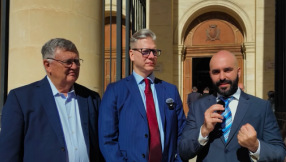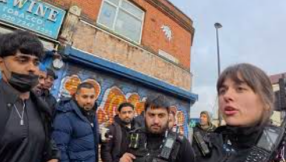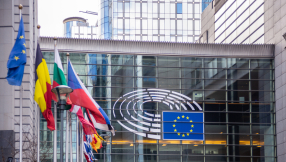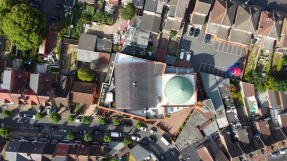Public confidence in priests and clergy hit an all-time low this year, according to Ipsos MORI's respected Veracity Index.
The long-running survey found just 65 per cent of adults say they trust priests to tell the truth, continuing a downward trend from 85 per cent in 1983, when they were the most trusted profession.
Abuse scandals, the ongoing decline in church attendance and debates around sexuality could have hit the public's confidence in priests. Now clergy come in below weather forecasters, on 76 per cent, and television news readers, on 67 per cent, and only slightly above 'the ordinary man/woman on the street', on 64 per cent.
But priests are still significantly more trustworthy than both politicians and journalists, although confidence in journalists shows signs of a small improvement.
Politicians generally remain the least trusted profession with just 17 per cent saying they trust them to tell the truth.
Meanwhile the introduction of professional footballers on 26 per cent means journalists move one place up the scale with 27 per cent of the public trusting them.
By contrast public confidence in police is at an all time high of 74 per cent and has risen steadily over the last decade, before which around 60 per cent said they trusted police to tell the truth.
Gideon Skinner, head of political polling at Ipsos MORI, said: 'Ipsos MORI has been tracking trust in professions for over 30 years and over that time there have been some notable movers. Groups such as professors, scientists, the police, trade union officials and civil servants have become more trusted, but the clergy are the most notable losers.
'But not everything changes – doctors, nurses and teachers have consistently been near the top, and politicians and journalists down the bottom.
'Trust in journalists does show signs of improvement, but even the recent harassment scandals at Westminster seemed to make little difference to low ratings in politicians as a class – either because it has already hit a floor, or because the public felt it reflected other aspects of trust such as moral behaviour more than their ability to tell the truth.
'Another notable finding is the difference between education levels and trust in many – but not all – professions, reflecting many other differences in views between these groups.
'Graduates tend to have higher levels of trust both in a range of "expert" groups such as weather forecasters, judges, civil servants and scientists, but also in journalists and the ordinary person on the street.'













